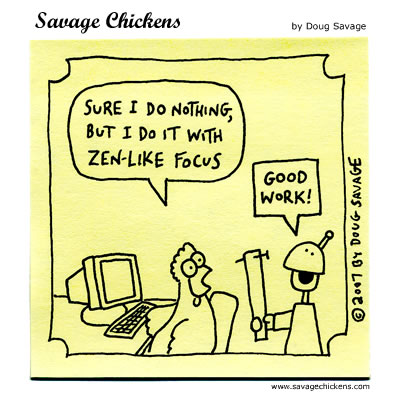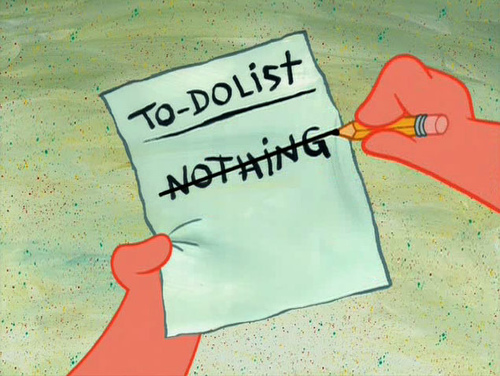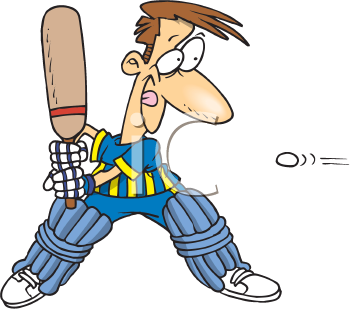It's been 16 weeks since I gave the NEET. 112 days. Almost one third of a year. No signs of the results coming out anytime soon. Seems surreal to sit and take stock of the number of days that have gone by and the number of useless things one has done with them.
And to think that an entire batch of medical graduates around the nation has been in the same state as me for the past three months; first robbed of a good two months of studying by the preponement of exams, then subjected to a torturous wait for results which have been indefinitely postponed, and an endless series of dates in the Supreme Court with no verdict in sight. I've been happily living in oblivion for the most part, but its finally getting to me. And with each day one steeps a little deeper into self-doubt and misery.
And of course the flow of well-meaning questions from people never stops, always reaching the same exact point: "And what are you doing these days?". Sigh.
To all you well-meaning people: I don't have the energy to answer and explain to you the complicated status of my professional life at the moment. And I don't need to see the judgmental look on your face at the end of my answer.
Anyways, what have I been doing?
Rediscovering myself. Making myself happy. Taking a vacation. Overdosing on romance. (Only in literature and movies, of course. Real-life romance still remains a daydream). Working, and quitting. Sleeping till noon. Earning money. Exploring new music. Shopping. Devouring novel after novel. Forcing myself to watch TV. Learning Paediatrics. Getting better. Getting fitter. Watching Hindi daily soaps.
Living the good life, apparently.
Seems I don't have much to complain about. Clearly the past few months haven't been a total waste. But I think there's only so much time a medical student can go without studying and without sleep deprived nights.
There, I said it.
In the past 6 years I've trained myself, against my will, to live and breathe in all those tomes of medical textbooks all the time. To keep giving exams on repeat. To have my head swimming with diseases all the time. To never have too much time on hand. To never have nothing to do.
So, being suddenly faced with months of nothingness, is downright absurd. The past three months have been weird. Anomalous. There's a strong undercurrent of unease. Like something's about to go terribly wrong. Like this isn't what I am supposed to be doing. That this will all turn out to be a huge prank and then disaster will strike.
Because this isn't how my life was supposed to be. No, not yet. I can't digest so much happiness and so much laziness. Too much of a good thing can kill you. So I'm pretty sure I'm dying soon if the results don't come out.
Never thought I'd say this, but I'm actually starting to miss those textbooks.
Oh, well.
Let me know what's happening to the rest of you, in the comments.
And to think that an entire batch of medical graduates around the nation has been in the same state as me for the past three months; first robbed of a good two months of studying by the preponement of exams, then subjected to a torturous wait for results which have been indefinitely postponed, and an endless series of dates in the Supreme Court with no verdict in sight. I've been happily living in oblivion for the most part, but its finally getting to me. And with each day one steeps a little deeper into self-doubt and misery.
And of course the flow of well-meaning questions from people never stops, always reaching the same exact point: "And what are you doing these days?". Sigh.
To all you well-meaning people: I don't have the energy to answer and explain to you the complicated status of my professional life at the moment. And I don't need to see the judgmental look on your face at the end of my answer.
Anyways, what have I been doing?
Rediscovering myself. Making myself happy. Taking a vacation. Overdosing on romance. (Only in literature and movies, of course. Real-life romance still remains a daydream). Working, and quitting. Sleeping till noon. Earning money. Exploring new music. Shopping. Devouring novel after novel. Forcing myself to watch TV. Learning Paediatrics. Getting better. Getting fitter. Watching Hindi daily soaps.
Living the good life, apparently.
Seems I don't have much to complain about. Clearly the past few months haven't been a total waste. But I think there's only so much time a medical student can go without studying and without sleep deprived nights.
There, I said it.
In the past 6 years I've trained myself, against my will, to live and breathe in all those tomes of medical textbooks all the time. To keep giving exams on repeat. To have my head swimming with diseases all the time. To never have too much time on hand. To never have nothing to do.
So, being suddenly faced with months of nothingness, is downright absurd. The past three months have been weird. Anomalous. There's a strong undercurrent of unease. Like something's about to go terribly wrong. Like this isn't what I am supposed to be doing. That this will all turn out to be a huge prank and then disaster will strike.
Because this isn't how my life was supposed to be. No, not yet. I can't digest so much happiness and so much laziness. Too much of a good thing can kill you. So I'm pretty sure I'm dying soon if the results don't come out.
Never thought I'd say this, but I'm actually starting to miss those textbooks.
Oh, well.
Let me know what's happening to the rest of you, in the comments.
 |
| Source: here |






















